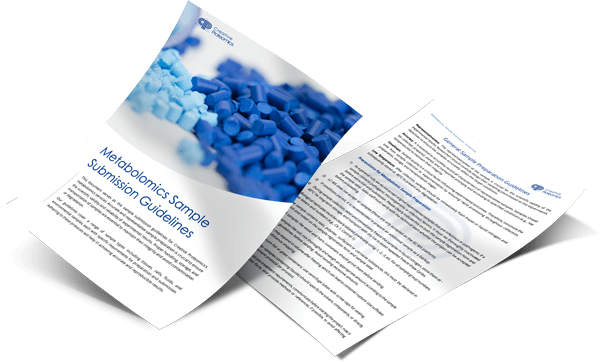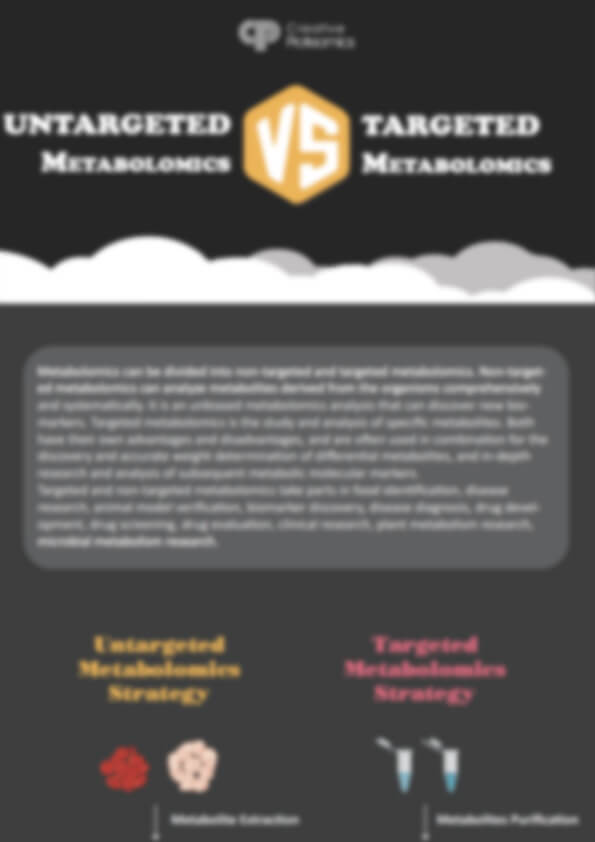Cerebrospinal Fluid Untargeted Metabolomics Service
Creative Proteomics provides advanced cerebrospinal fluid (CSF) untargeted metabolomics services, delivering high-sensitivity, high-coverage metabolic profiling for central nervous system (CNS) research. Using cutting-edge LC-MS and GC-MS platforms, we offer full-spectrum metabolite identification, statistical analysis, and pathway mapping. Our services help researchers uncover subtle biochemical changes, accelerate mechanism studies, and drive discoveries in neurobiology, toxicology, and multi-omics integration.
Submit Your Request Now
×- Why Choose
- What We Provide
- Advantage
- Workflow
- Technology Platforms
- Sample Requirements
- FAQ
- Publication
Why Choose Cerebrospinal Fluid (CSF) for Metabolomics Analysis?
Cerebrospinal fluid (CSF) is one of the most valuable sample types for central nervous system (CNS) metabolomics due to its direct contact with brain and spinal tissues. Unlike peripheral biofluids, CSF offers a clear and focused biochemical profile with minimal systemic interference, making it ideally suited for studies targeting CNS-specific metabolic pathways.
With significantly lower protein content and reduced molecular complexity compared to plasma or serum, CSF allows for the high-resolution detection of low-abundance metabolites, including polar small molecules, trace metals, neurotransmitter precursors, and lipid species. These features enhance signal clarity and analytical sensitivity, even for metabolites present at parts-per-billion (ppb) levels.
Key characteristics of CSF that support untargeted metabolomics:
- CNS-Specific Biochemical Signature: Directly reflects neural metabolic activity with minimal peripheral dilution.
- Low Background Interference: Free from hemoglobin and coagulation proteins, reducing ion suppression and spectral noise in MS-based workflows.
- Stable Physicochemical Properties: Near-neutral pH and low osmolarity help preserve the integrity of labile metabolites.
- Cleaner Matrix for Detection: Enables deeper profiling of sphingolipids, amino acids, neurotransmitter intermediates, and trace elements.
For researchers focused on CNS biochemistry, neurodevelopment, aging, or environmental neurotoxicology, CSF provides a superior matrix to uncover subtle, yet biologically meaningful, metabolic variations.
Cerebrospinal Fluid Untargeted Metabolomics Offered by Creative Proteomics
- Global Metabolite Profiling: Broad-spectrum detection and semi-quantitative analysis of thousands of endogenous metabolites.
- Differential Metabolite Analysis: Comparative analysis between experimental groups to identify statistically significant changes.
- Multivariate Statistical Modeling: PCA, PLS-DA, and hierarchical clustering to uncover metabolic patterns and group separation.
- Pathway and Network Enrichment: Mapping altered metabolites to biological pathways using KEGG, HMDB, and other databases.
- Custom Biomarker Screening: Identification of potential CSF-based markers for mechanistic research or compound screening.
- Lipidomics Sub-Module (Optional): Targeted enrichment of lipid classes such as sphingomyelins, phospholipids, and acylcarnitines.
- Data Annotation & Database Integration: Cross-referencing of identified metabolites with public and proprietary spectral libraries.
- Visualization & Reporting: Comprehensive reports with volcano plots, heatmaps, pathway maps, and interactive data outputs.
Advantages of Our Service
- Quantification Accuracy: Achieves a lower limit of quantification (LLOQ) as low as 5 pg/mL for most leukotrienes.
- Ultra-Sensitive Detection: Employs multiple reaction monitoring (MRM) modes, enhancing detection sensitivity by 20–50x compared to conventional methods.
- High-Throughput Capability: Capable of analyzing over 100 samples/day with robust batch processing and internal QC.
- Comprehensive Metabolite Coverage: Simultaneous quantification of 15+ leukotrienes and metabolites in a single run.
- Batch-to-Batch Consistency: CV% maintained below 10% across inter- and intra-assay replicates.
- Validated Recovery Rates: Exceeds 85% recovery for leukotrienes from plasma and tissue homogenates.
Workflow for Cerebrospinal Fluid Untargeted Metabolomics Service
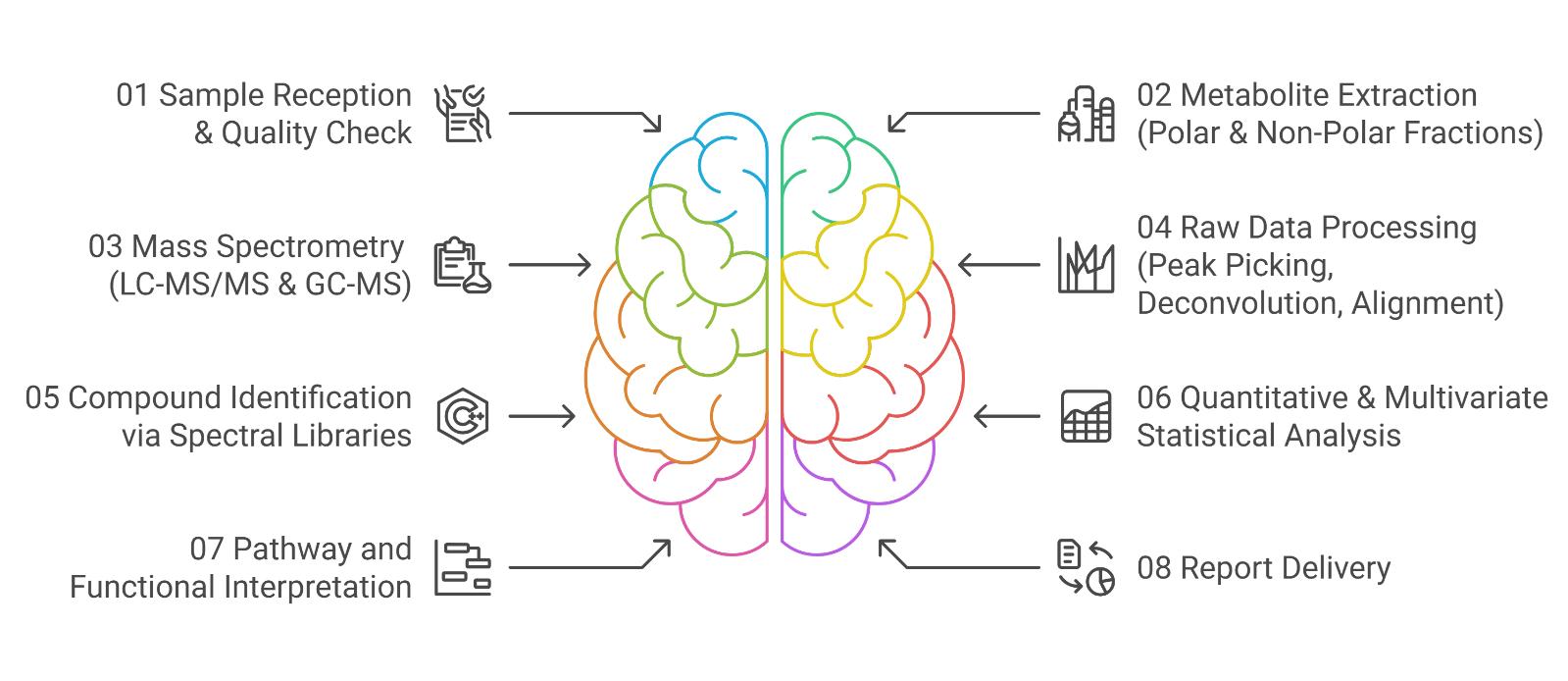
Technology Platform for Cerebrospinal Fluid Untargeted Metabolomics Service
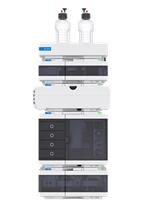
Agilent 1260 Infinity II HPLC (Fig from Agilent)
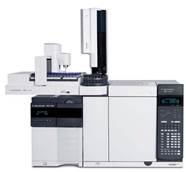
Agilent 7890B-5977A (Figure from Agilent)
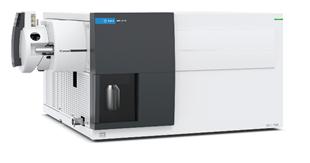
Agilent 6495C Triple quadrupole (Figure from Agilent)
Sample Requirements for Cerebrospinal Fluid Untargeted Metabolomics Service
| Parameter | Requirement |
|---|---|
| Sample Type | Human or animal cerebrospinal fluid (CSF) |
| Minimum Volume Required | ≥ 100 µL (optimal: 200–500 µL per sample) |
| Container Type | Sterile, low-binding microcentrifuge tubes (e.g., polypropylene, 1.5 mL) |
| Sample Condition | Fresh or previously frozen (recommended: immediately snap-frozen in liquid N₂) |
| Storage Temperature | -80°C |
| Shipping Condition | Dry ice shipment; avoid repeated freeze-thaw cycles |
Applications of Cerebrospinal Fluid Untargeted Metabolomics Assay
Central Nervous System (CNS) Mechanistic Studies
Explore metabolic shifts associated with neurodevelopment, synaptic plasticity, or neuroinflammation through unbiased profiling.
Neurotoxicity and Environmental Exposure Research
Assess the metabolic impact of heavy metals, pollutants, or pharmaceutical compounds on CNS biofluid composition.
Biomarker Discovery for Preclinical Models
Identify CSF metabolic changes in animal models to support early-phase research or mechanism-of-action studies.
Metabolic Network Mapping in Neuroscience
Construct and validate biochemical interaction networks related to energy metabolism, neurotransmission, and lipid turnover in the CNS.
Comparative Metabolomics Across Species or Conditions
Compare CSF metabolomes between experimental groups, genotypes, or time points to reveal unique metabolic phenotypes.
Systems Biology & Multi-Omics Integration
Combine CSF metabolomics with transcriptomics, proteomics, or lipidomics for a systems-level understanding of CNS function.
Aging and Neurodevelopmental Research
Investigate age-related or developmental metabolic transitions in the brain microenvironment using CSF as a dynamic matrix.
CSF Pharmacometabolomics
Evaluate the metabolic footprint of investigational compounds in CNS-targeted research during non-clinical studies.
Demo

Untargeted metabolomics reveals differences in metabolomic profiles of CSF in the acute-phase and recovery-phase of ICH (Zhang, Huaying, et al., 2025)
FAQ of Cerebrospinal Fluid Untargeted Metabolomics Service
What is the minimum number of samples recommended for meaningful statistical analysis?
For reliable untargeted metabolomics analysis, we recommend a minimum of 6–10 biological replicates per group. Larger sample sizes increase statistical power for detecting subtle metabolic differences.
Can you analyze small-volume CSF samples (<100 µL)?
Yes, we can accommodate small-volume samples through specialized low-volume workflows. However, a minimum of 50 µL is strongly recommended to ensure sufficient metabolite coverage.
How should CSF samples be handled prior to shipment?
Samples should be immediately snap-frozen in liquid nitrogen after collection and stored at -80°C. Please avoid freeze-thaw cycles to preserve metabolite integrity. Ship samples on dry ice to maintain ultra-low temperatures during transit.
How are metabolites identified in the untargeted workflow?
We use high-resolution mass spectrometry data combined with in-house and public databases (such as HMDB, KEGG, and METLIN). Identification is based on accurate mass, MS/MS fragmentation patterns, and retention time when available.
What kind of data deliverables can I expect?
Clients receive raw mass spectrometry files, a processed metabolite feature table, differential metabolite analysis results, multivariate statistical plots (PCA, PLS-DA), pathway enrichment reports, and comprehensive bioinformatics interpretation.
Can Creative Proteomics help with data interpretation if I have specific biological questions?
Absolutely. Our bioinformatics experts can assist with customized data analysis, interpretation, and biological insights tailored to your research goals, including targeted pathway analysis and metabolite correlation studies.
What quality control (QC) measures are included in the workflow?
We incorporate pooled QC samples, internal standards, and blank controls throughout the analytical run to monitor instrument performance, ensure data reproducibility, and detect potential contamination or drift.
Is it possible to perform lipid-focused metabolomics in CSF using this service?
Yes. If you are interested in lipid-specific profiling (e.g., sphingolipids, phospholipids), we offer optional lipidomics modules that can be integrated with the CSF metabolomics analysis.
Can you perform batch analysis if my CSF samples are collected over different periods?
Yes. We can process samples in multiple batches and apply batch effect correction during data analysis to ensure consistency across datasets.
What metabolite classes are typically detectable in CSF samples?
Our platform can detect a wide range of metabolites, including amino acids, nucleotides, organic acids, neurotransmitter precursors, lipids, energy metabolites (e.g., TCA cycle intermediates), and small peptides.
How long does the complete analysis take?
The typical turnaround time for CSF untargeted metabolomics projects is approximately 6–8 weeks, depending on sample quantity, project complexity, and requested bioinformatics deliverables.
Learn about other Q&A.
Cerebrospinal Fluid Untargeted Metabolomics Case Study
Publications
Here are some publications in Metabolomics research from our clients:

- Quantifying forms and functions of intestinal bile acid pools in mice. 2024. https://doi.org/10.1101/2024.02.16.580658
- Elevated SLC7A2 expression is associated with an abnormal neuroinflammatory response and nitrosative stress in Huntington’s disease. 2024. https://doi.org/10.1186/s12974-024-03038-2
- Ketone bodies are mildly elevated in subjects with type 2 diabetes mellitus and are inversely associated with insulin resistance as measured by the lipoprotein insulin resistance index. 2020. https://doi.org/10.3390/jcm9020321
- Neddylation is required for perinatal cardiac development through stimulation of metabolic maturation. 2023. https://doi.org/10.1016/j.celrep.2023.112018
- Macrophage-associated lipin-1 promotes β-oxidation in response to proresolving stimuli. 2020. https://doi.org/10.4049/immunohorizons.2000047
References
- Zhang, Huaying, et al. "Influx of Metabolites into Cerebrospinal Fluid in Intracerebral Hemorrhage is Associated with Increased Central Inflammation: a Retrospective Observational Study." Translational Stroke Research (2025): 1-13. https://doi.org/10.1007/s12975-025-01342-4
- Panyard, Daniel J., et al. "Cerebrospinal fluid metabolomics identifies 19 brain-related phenotype associations." Communications biology 4.1 (2021): 63. https://doi.org/10.1038/s42003-020-01583-z


